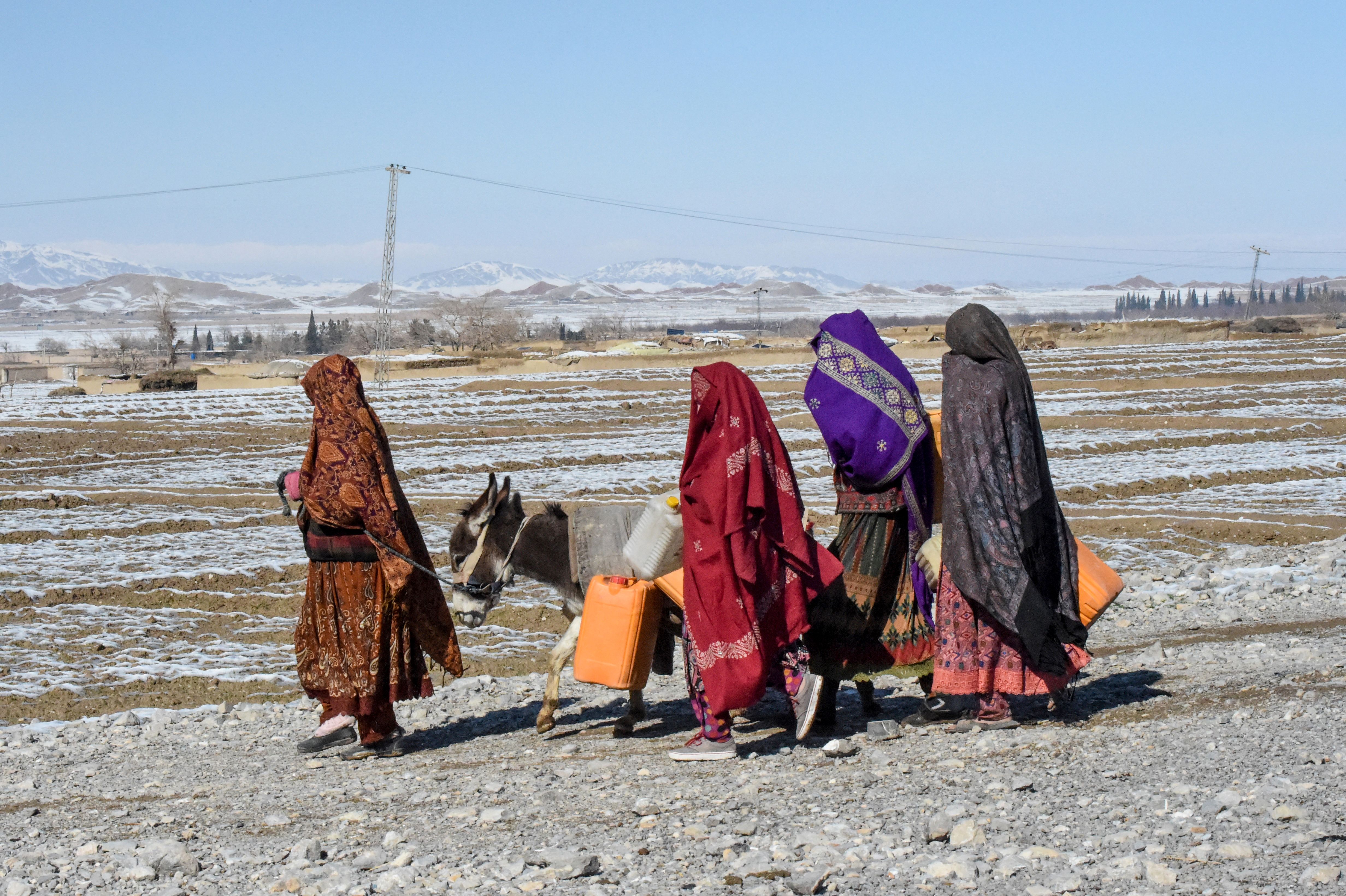Women and children are on the frontlines of the crisis in Afghanistan
The pregnant women I met in Afghanistan’s Parwan province are worried about childbirth, but also how they will be able to feed their children


Up a dusty path, outside the mud walls of a large compound, a queue of women in colourful robes is growing. They hold the hands of their children and comfort them gently. Some are holding newborn babies.
Inside a house, a doctor, midwife and vaccinator from the Afghan Red Crescent have set up for the day, handing out medicine and examining pregnant women with complications. Most of the children are silent.
As soon as we enter the compound, we see children being vaccinated against polio, measles and other diseases. In a nearby room, pregnant women are seen by a midwife. Many speak to them about their fears. They are worried about childbirth, but also how they will be able to feed their children. The bleakest winter in many years has come to Afghanistan, and women and children are on the frontlines.
In mountainous areas, temperatures can go as low as -25C. In the capital of Kabul, they can dip to –3C in the winter months.
The clinic in Shakardara, Parwan province, is just one of 150 mobile health clinics run by the Afghan Red Crescent. They are the only source of healthcare for many living in Afghanistan’s remote regions.
In the Panjshir valley, I spent the day with a midwife and doctor from the Afghan Red Crescent who hadn’t been paid for four months. She told me how she came to work every single day, before, during and after the transition. “If I miss a day, women will get turned back and won’t get healthcare,” she said. “I’m a doctor, it’s my responsibility.”
It’s inspiring to meet people like her. There are thousands of teachers, nurses and civil servants in Afghanistan carrying on out of a sense of duty, and because not doing so would mean the difference between life and death.
To keep up to speed with all the latest opinions and comment, sign up to our free weekly Voices Dispatches newsletter by clicking here
Today, teams funded by the British Red Cross race against the clock to distribute boxes with cooking oil, flour, sugar and high protein biscuits. Winter clothes and sanitary kits for periods are also given out, along with thick blankets to wrap up babies sick with pneumonia. Over 20,000 people have been reached so far, and hundreds of thousands more will too in the weeks to come.
Neither these emergency distributions nor our health clinics would be possible without the public’s support. They have never been as necessary as they are now.
Maryann Horne is head of policy at the British Red Cross. You can donate to the British Red Cross Afghanistan crisis appeal here
Join our commenting forum
Join thought-provoking conversations, follow other Independent readers and see their replies
Comments
Bookmark popover
Removed from bookmarks